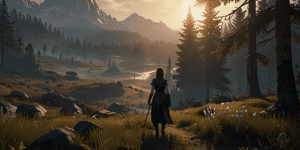Pioneering Frontiers: How Red Dead Redemption 2 Redefined Open-World Gaming and Player Freedom
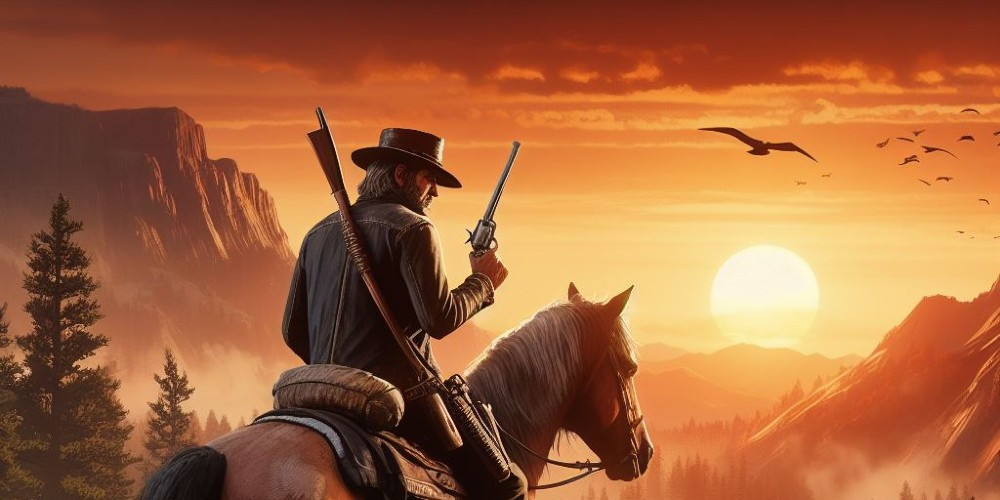
In the landscape of modern gaming, few titles have cast as long and as profound a shadow as Red Dead Redemption 2 (RDR2). Developed by Rockstar Red Dead Redemption 2, it is not merely a sequel to a beloved franchise; it's a monumental achievement in open-world design and a testament to the power of giving players freedom. This article delves into the depths of how RDR2 has influenced the gaming industry, setting new standards for game design and player engagement.
The Evolution of Open World Design
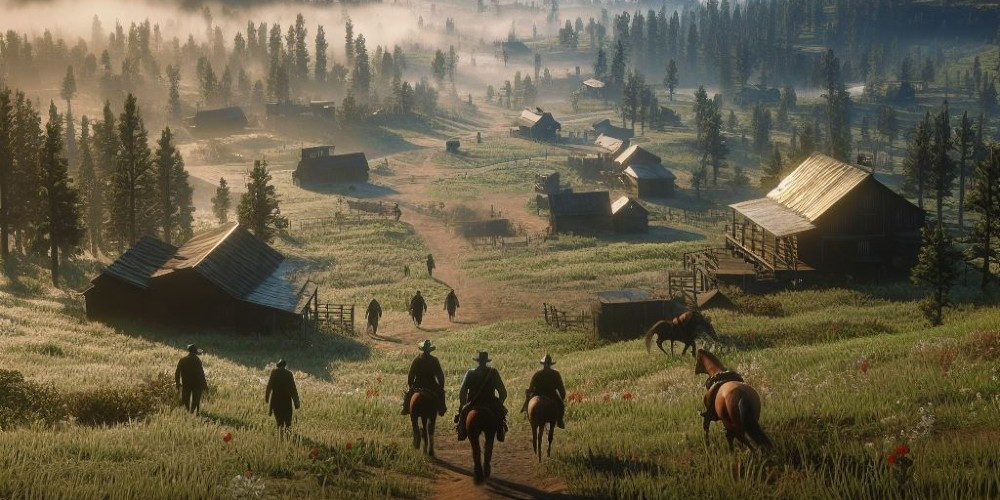
RDR2 stands as a pinnacle of open-world exploration, pushing the boundaries of what gamers expect from expansive, living worlds. Prior to its release, open-world games were often criticized for their repetitive tasks and lack of meaningful interaction. RDR2, however, introduced a world teeming with life, where every nook and cranny held a story, and every character had depth. The game's environment, set in a meticulously recreated late 19th-century America, is not just a backdrop but a character in its own right, full of mysteries and adventures that reward the curious player.
Redefining Player Freedom
Where RDR2 truly shines is in its unparalleled player freedom. Unlike many of its predecessors, map of Red Dead Redemption 2 allows players to truly live in its world, making choices that feel impactful and real. From the moral decisions of the protagonist, Arthur Morgan, to the minutiae of daily life in the old west, players are given control over their destiny in ways previously unimagined. This level of agency has set a new benchmark for player freedom, influencing countless games in its wake.
Storytelling and Emotional Engagement
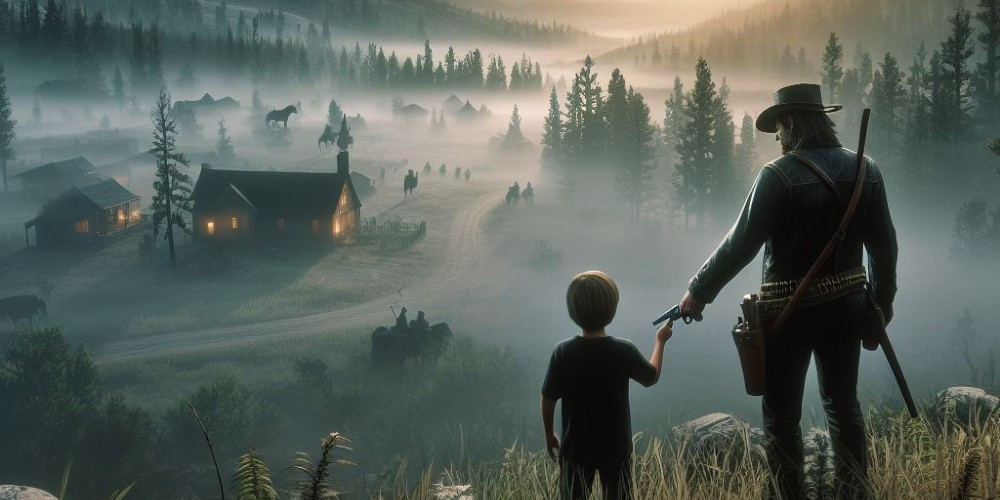
RDR2 also revolutionized storytelling within the open-world genre. Through its detailed world and deep, complex characters, it delivers a narrative experience that is both expansive and deeply personal. The emotional journey of Arthur Morgan is one that players can profoundly influence, making choices that affect his relationships and the world around him. This blend of broad narrative scope with individual player agency has become a model for how stories can be told in video games.
Technical Innovation and Attention to Detail
The technical achievements of RDR2 cannot be overstated. From its stunning visuals to the dynamic weather system and AI routines for hundreds of animals and NPCs, RDR2 set new standards for what's possible in video games. This attention to detail is not just cosmetic; it fundamentally changes how players interact with the game world, making it feel alive and unpredictable. The game's influence can be seen in the wave of titles that have since aimed to emulate its level of detail and immersion.
Influence on Future Game Designs
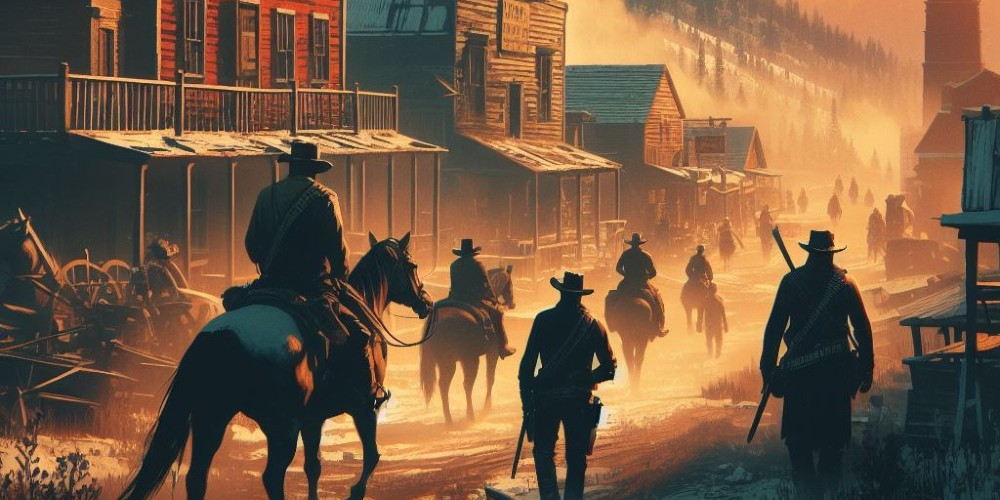
RDR2's impact on the gaming industry is evident in the titles that have followed it. Games are now being designed with greater emphasis on open-world realism, dynamic storytelling, and player choice. Developers are taking lessons from RDR2's success to create worlds that are more interactive and immersive. The game has raised the bar, challenging developers to innovate and enrich the open-world experience.
Red Dead Redemption 2's contribution to modern gaming cannot be understated. It has redefined what players expect from open-world games, elevating standards for storytelling, player freedom, and technical excellence. As developers continue to draw inspiration from RDR2, its influence is sure to be felt for years to come, shaping the future of video game design. In the vast, open plains of the gaming landscape, RDR2 stands as a landmark achievement, a beacon guiding the industry toward ever more immersive and engaging experiences.
Latest posts
See more-
![The Last of Us Part II: In-Depth Character Analysis and Storyline Exploration]() Editor’s Choice
2024-08-11
The Last of Us Part II: In-Depth Character Analysis and Storyline Exploration
The Last of Us Part II is an action-adventure video game that has gained significant popularity since its inception. Developed with immense creative prowess by...
Editor’s Choice
2024-08-11
The Last of Us Part II: In-Depth Character Analysis and Storyline Exploration
The Last of Us Part II is an action-adventure video game that has gained significant popularity since its inception. Developed with immense creative prowess by...
-
![CrossCode Developer Announces Alabaster Dawn, Enters Early Access in Late 2025]() News
2024-08-12
CrossCode Developer Announces Alabaster Dawn, Enters Early Access in Late 2025
In 2021, Radical Fish Games initially introduced a new action RPG titled Project Terra. Now, they have officially named it Alabaster Dawn and announced that...
News
2024-08-12
CrossCode Developer Announces Alabaster Dawn, Enters Early Access in Late 2025
In 2021, Radical Fish Games initially introduced a new action RPG titled Project Terra. Now, they have officially named it Alabaster Dawn and announced that...
-
![Alabaster Dawn Planned to Have 30-60 Hours of Playtime, Demo Launching in Early 2025]() News
2024-08-13
Alabaster Dawn Planned to Have 30-60 Hours of Playtime, Demo Launching in Early 2025
Radical Fish Games has made an exciting announcement regarding their upcoming action RPG, Alabaster Dawn, which is set to enter early access in 2025. In...
News
2024-08-13
Alabaster Dawn Planned to Have 30-60 Hours of Playtime, Demo Launching in Early 2025
Radical Fish Games has made an exciting announcement regarding their upcoming action RPG, Alabaster Dawn, which is set to enter early access in 2025. In...
Latest Reviews
See more-
![]() Action
Cult of the Lamb
Action
Cult of the Lamb
-
![]() Action
WILD HEARTS™
Action
WILD HEARTS™
-
![]() Casual
Gacha Club
Casual
Gacha Club
-
![]() Action
Call of Duty®: Warzone™ 2.0
Action
Call of Duty®: Warzone™ 2.0
-
![]() Action
Gacha Cute
Action
Gacha Cute
-
![]() Action
Cuphead - The Delicious Last Course
Action
Cuphead - The Delicious Last Course




